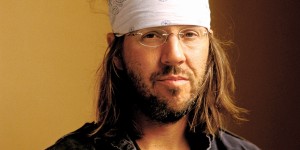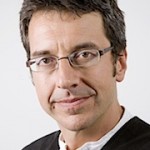Good things happen to men who do dishes and tidy up their rooms, especially if they listen to good radio stations. Here are a couple of highlights from a mere 90 minutes of radio (plus a little scrubbing, a little filing, a little man, look at this place!).
Hail to Jane. How do we make cities work? Three radio guests offered their answers, their hopes and despair, about the state of cities in Canada, in everywhere. Reverend Bowtie (aka Michael Enright) was piloting The Sunday Edition, and navigating the airwaves with him were architect Brigitte Shim, a former Vancouver planner (was it Larry Beasley? Ah, the downside to writers doing dishes: poor note-taking), and Toronto’s William Thorsell, a former Globe and Mail editor and now head of the Royal Ontario Museum. They were talking cities, and responding to Enright’s how do they work questions. They decried city development that was piecemeal and commodified and developer-driven. They argued that density wasn’t a bad word, if it was combined with humanity and concern for the building of coherent and livable communities within a city. Shim, in particular, wondered how long it would be before we figured out that bulldozing prime farmland for sprawling one-family commuter suburbs might not be a sustainable practice. Thorsell, in particular, confessed his shame at being a Torontonian every time he visits Vancouver, a world model for urban sustainability. And Beasley – if I’ve actually got the right guy – was particularly humble in discussing what North American cities might be able to learn from what Vancouver is doing. (So why hail Jane? Because behind all this thinking and re-thinking about what can make cities the centre of art, culture, science, dynamic forms of human understanding, is the astoundingly clear and still-ringing voice of the late Jane Jacobs. The only reason I could even follow this morning’s conversation was because I finally read her brilliant book The Death and Life of Great American Cities last year. Few books have informed me like this one.)
Hail to Ingrid. Check this out. Not only is she a woman, not only is her name Ingrid, but she grew up as a devout Roman Catholic in Kitchener, Ontario. This seemingly ordinary constellation of facts becomes astonishing when you hear, as I did this morning for the first time, that Ingrid Mattson has been elected President of the Islamic Society of North America. (She had been a vice-president since 2001, and a good profile of her from that year can be found here.) She converted to Islam as a young woman, having rediscovered in Muslim practice the child-like wonder and reverence she had loved as a Christian child. She also found great scope and comfort for her brilliant mind, and she is now professor of Islamic studies at Hartford Seminary in Connecticut. What a calm and intelligent voice she has! And what a potent perspective she brings to Muslim communities around the world, and to those who wish to better understand Islam, as a woman of European/Christian heritage, Canadian upbringing and profound Muslim scholarship, a wife, mother, academic and Western convert to the Faith of Muhammad. I’m glad to know Ingrid is at work in the world.
Hail to Agnes. For a reason I didn’t entirely catch, there was a brief tribute to Agnes McPhail in my radio, too. In the first year that Canadian women had the right to vote — did you know it was 1921? — McPhail was elected to Canada’s House of Commons as the first – and for a long time, the only – woman Member of Parliament. She served nobly until 1940, and later spent five years as an Ontario M.P.P. I heard her voice for the first time this morning, a tape of a CBC interview from the late 1930s, I think. Here was another smart and serene (and quietly fierce) female voice. (It’s the same voice she used when, heckled by a fellow MP — “Hey Agnes, don’t you wish you were a man?!” — she fixed him with a cool stare and said “Why yes, don’t you?”) She had an eloquence we don’t often hear these days, and a flatness of tone that showed no evidence of media training or the search for the perfect sound-bite. Yet she was incisive, clear and almost unbelievably modern in her views, without the shrill extremes that often accompany contemporary quests for justice. Except perhaps for the diction, her discussion could only be dated by the laughably archaic worries of the male union leader she was quietly slaughtering in debate.
Hail to Wendy. The last thing I heard on The Sunday Edition was a repeat documentary, first aired last spring, on a fifth-grade teacher in an Ottawa Catholic elementary school. Her name is Wendy Alexis, and her voice was one of those reminders of the greatness of the good teacher. Our culture too seldom recognizes it, but the Wendys of the world are priceless gems. “Always keep a diamond in your mind…” This Tom Waits lyric rumbles through my thoughts in the voice of Solomon Burke, and today it refers to Ms. Alexis. Her classroom is one of those New Canada, New World places where the children come from 20 countries, speak 15 languages among them, and are often refugees from humanity’s greatest modern failures. So Wendy Alexis gets her kids to be quiet so they can listen, to clean up the floor, and to learn their times tables. Yes, and she has created a community that is a microcosm of a suffering but still-hopeful world, where children can tell and hear their stories and work for the betterment of a world that has done them harm. And these kids at St. Luke’s school have a small project. It’s called “One Angel at a Time” (oneangelatatime@hotmail.com), and it is a project of remembrance. They are collecting feathers, 800,000 feathers, one for each of the slaughtered in the Rwandan genocide of 1994. I’m not sure what they’re doing with them, and I don’t much care. They are becoming angels of mindfulness and compassion. They have about 50,000 so far. They are learning to read and think and love and trust. I’d like to send some feathers for these angels. And you?
Jane and Ingrid and Agnes and Wendy. Good morning!


